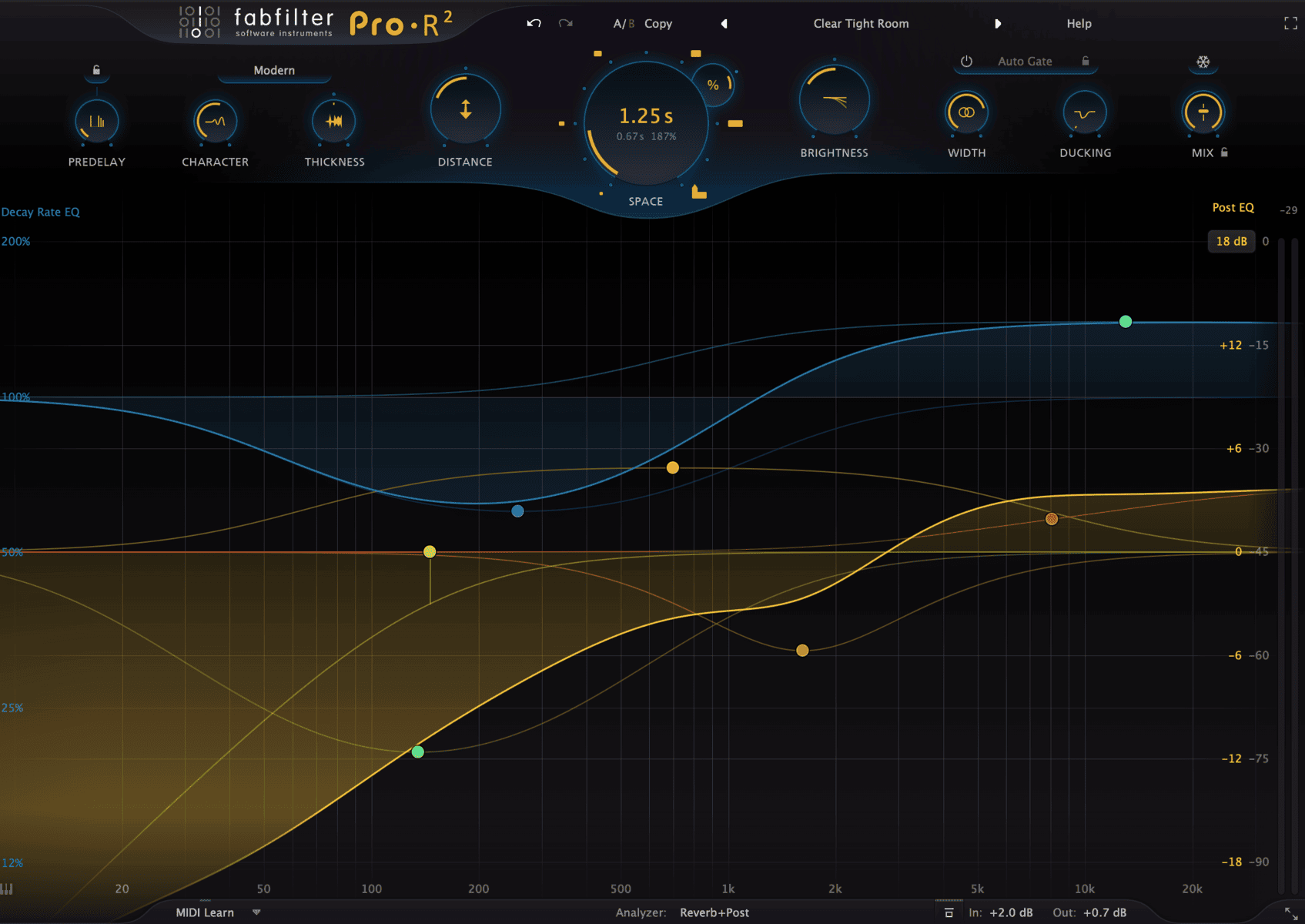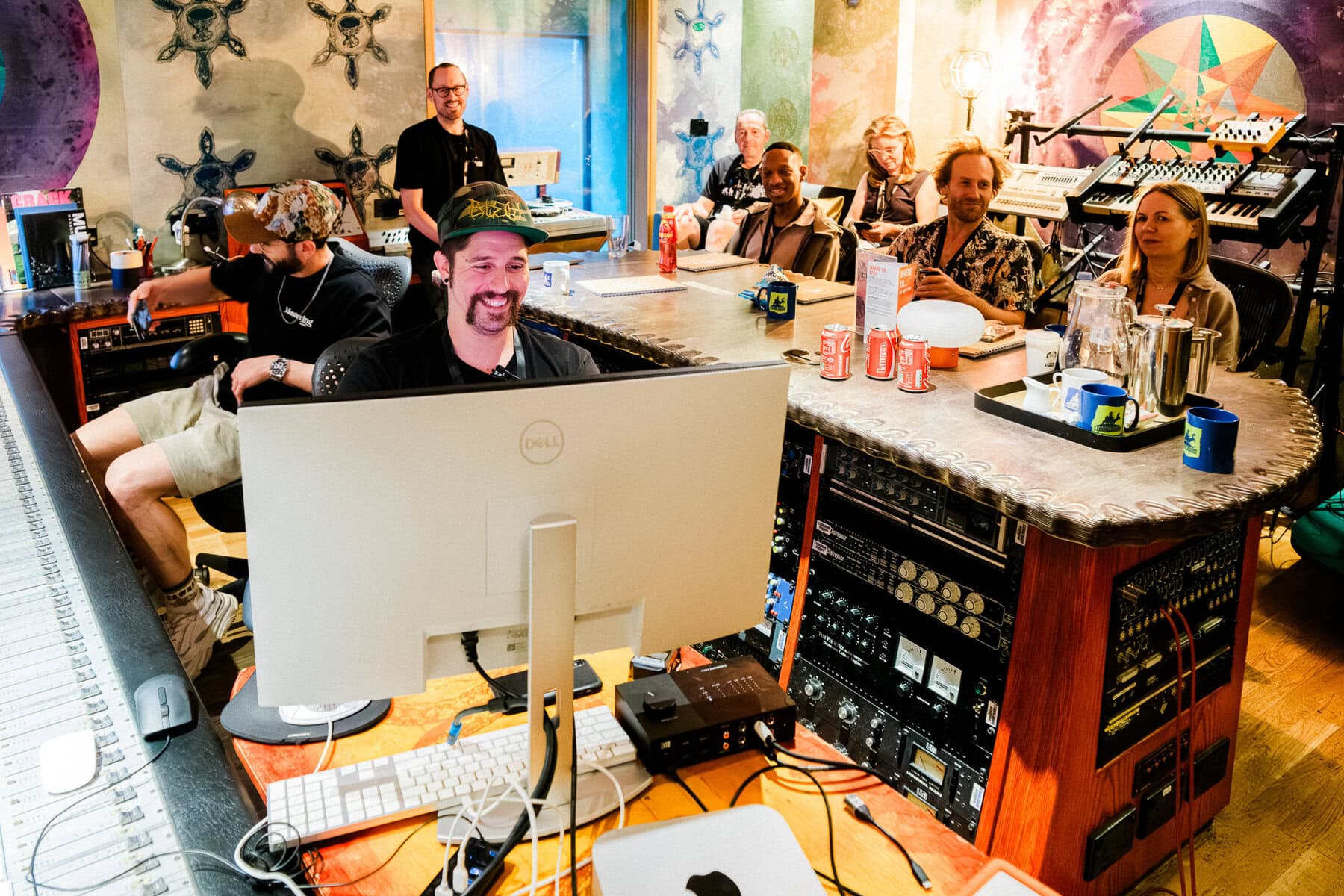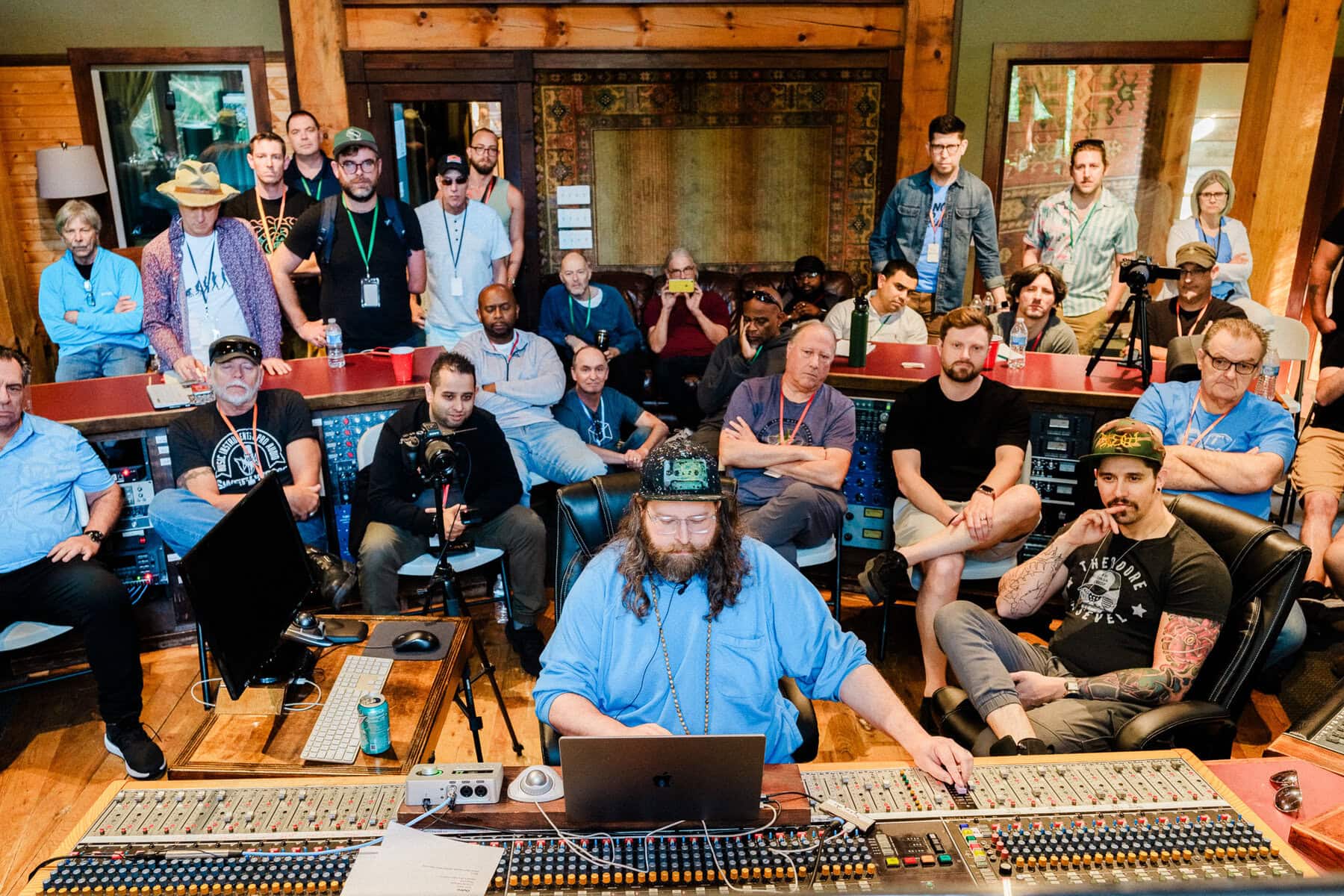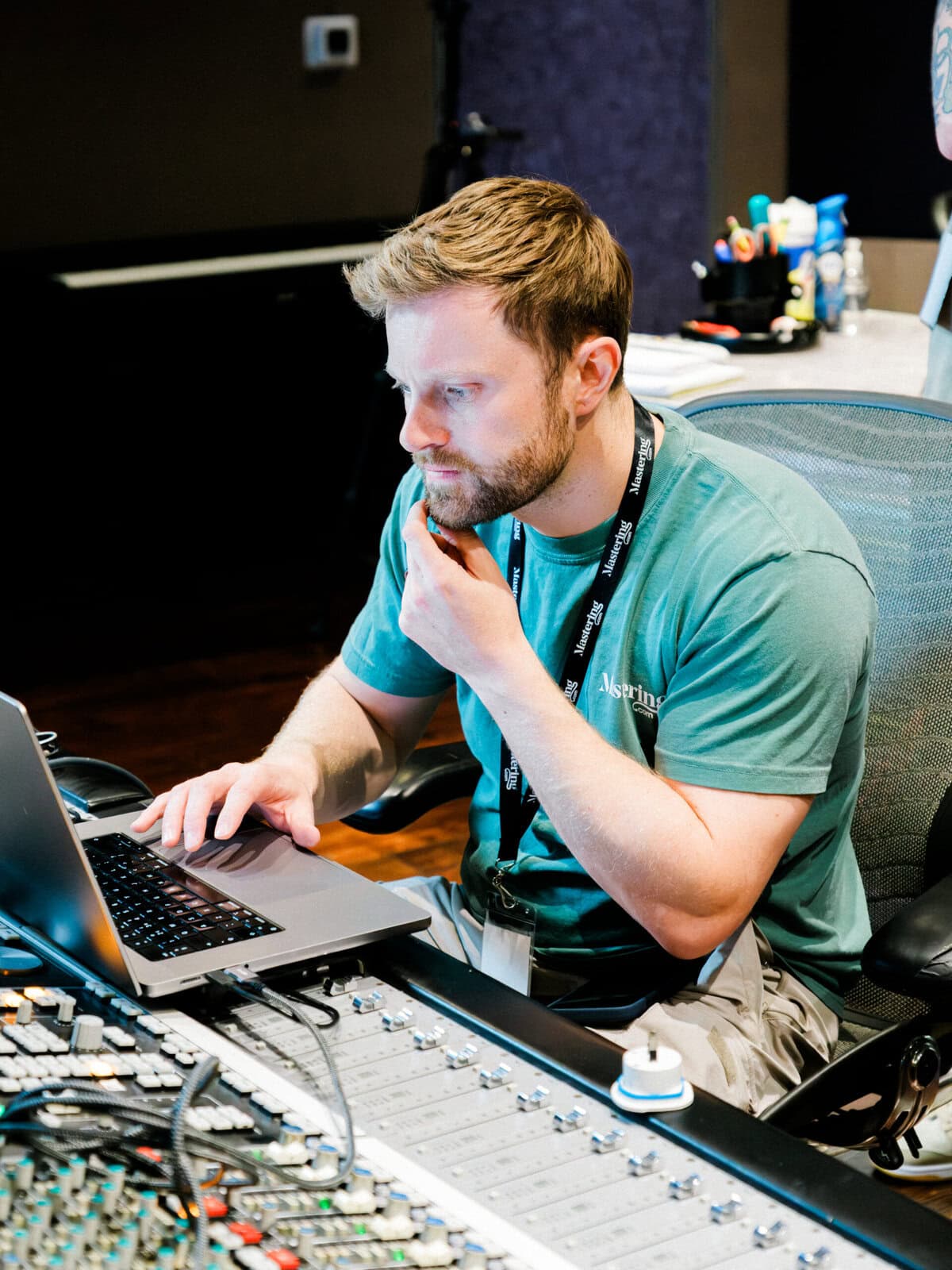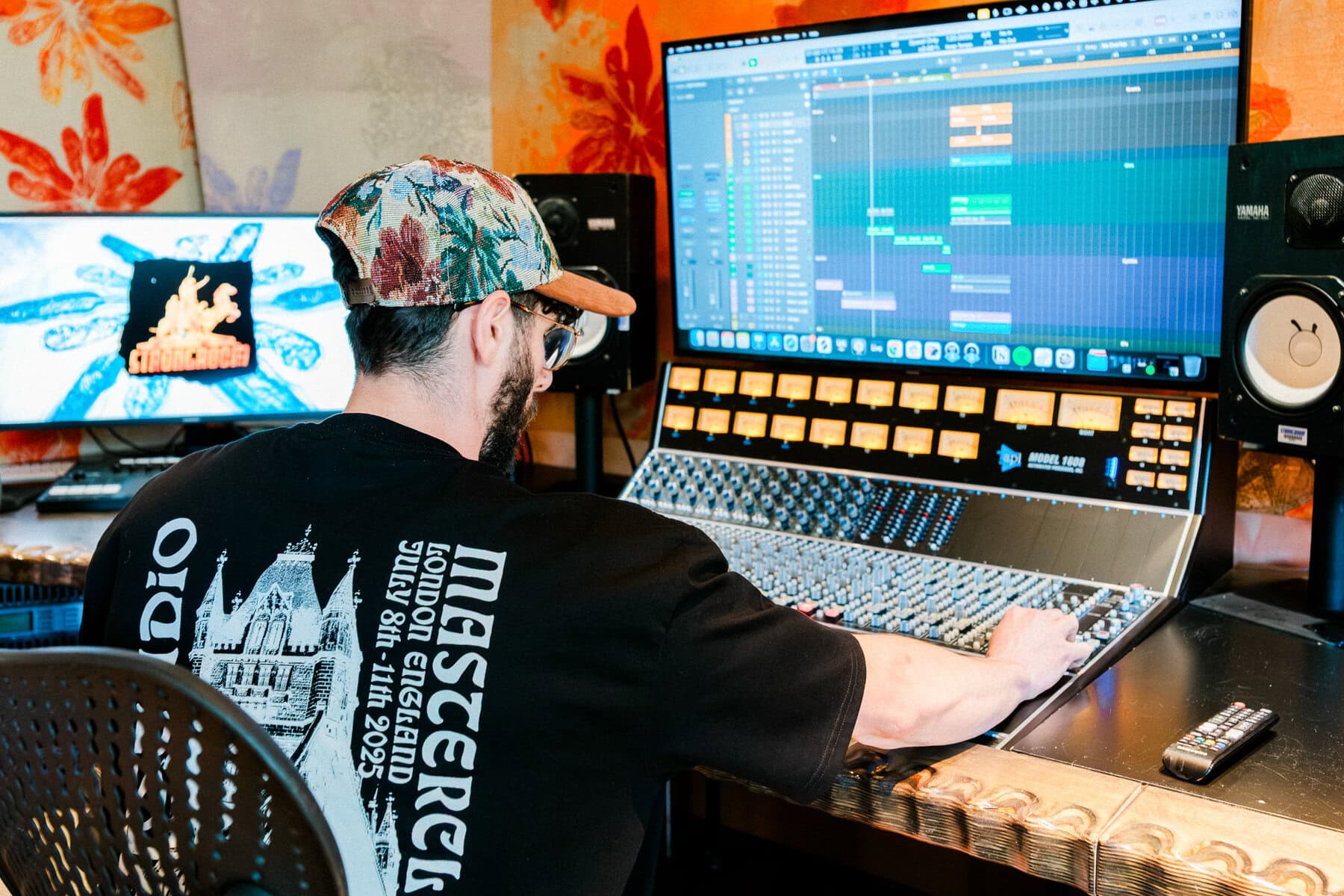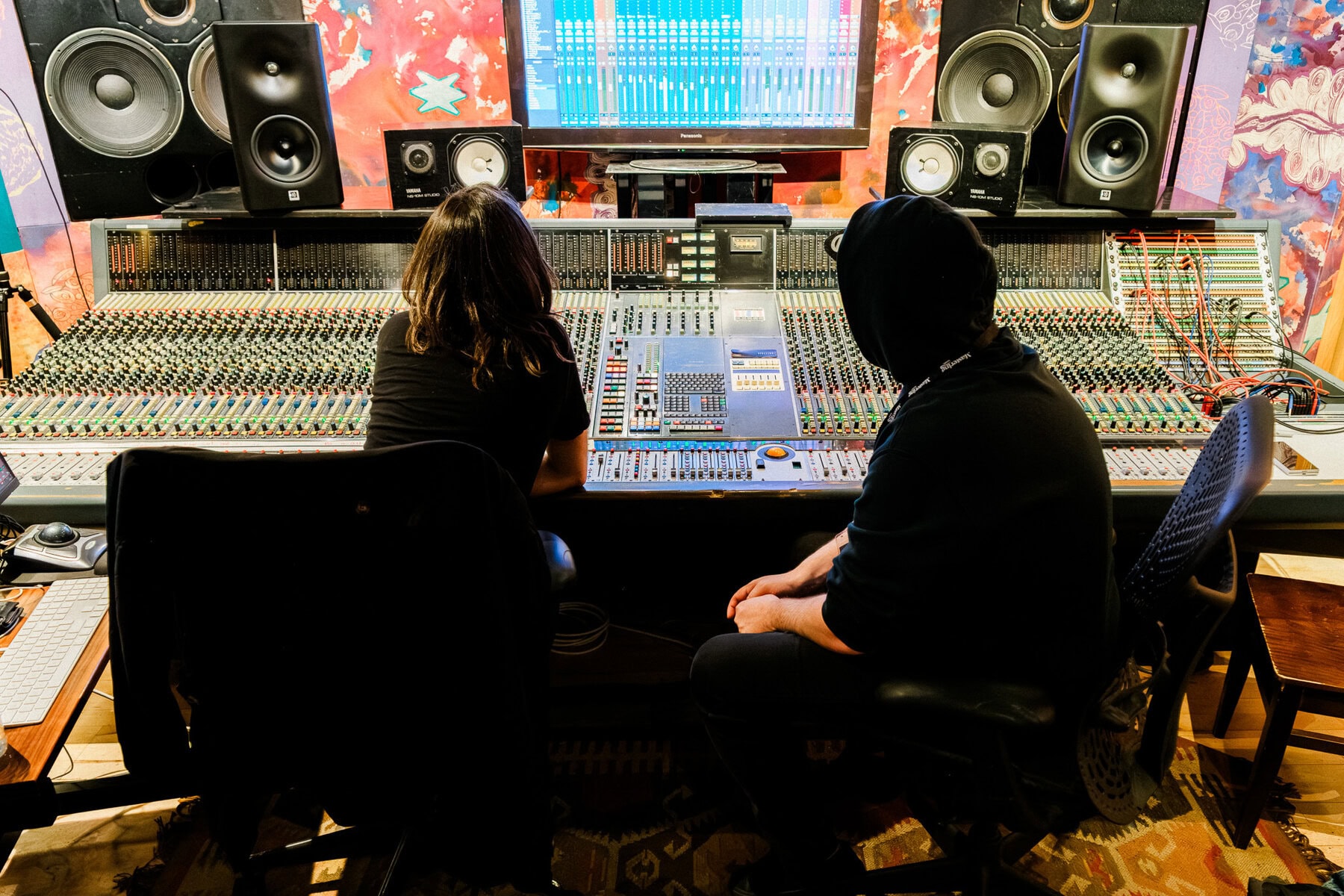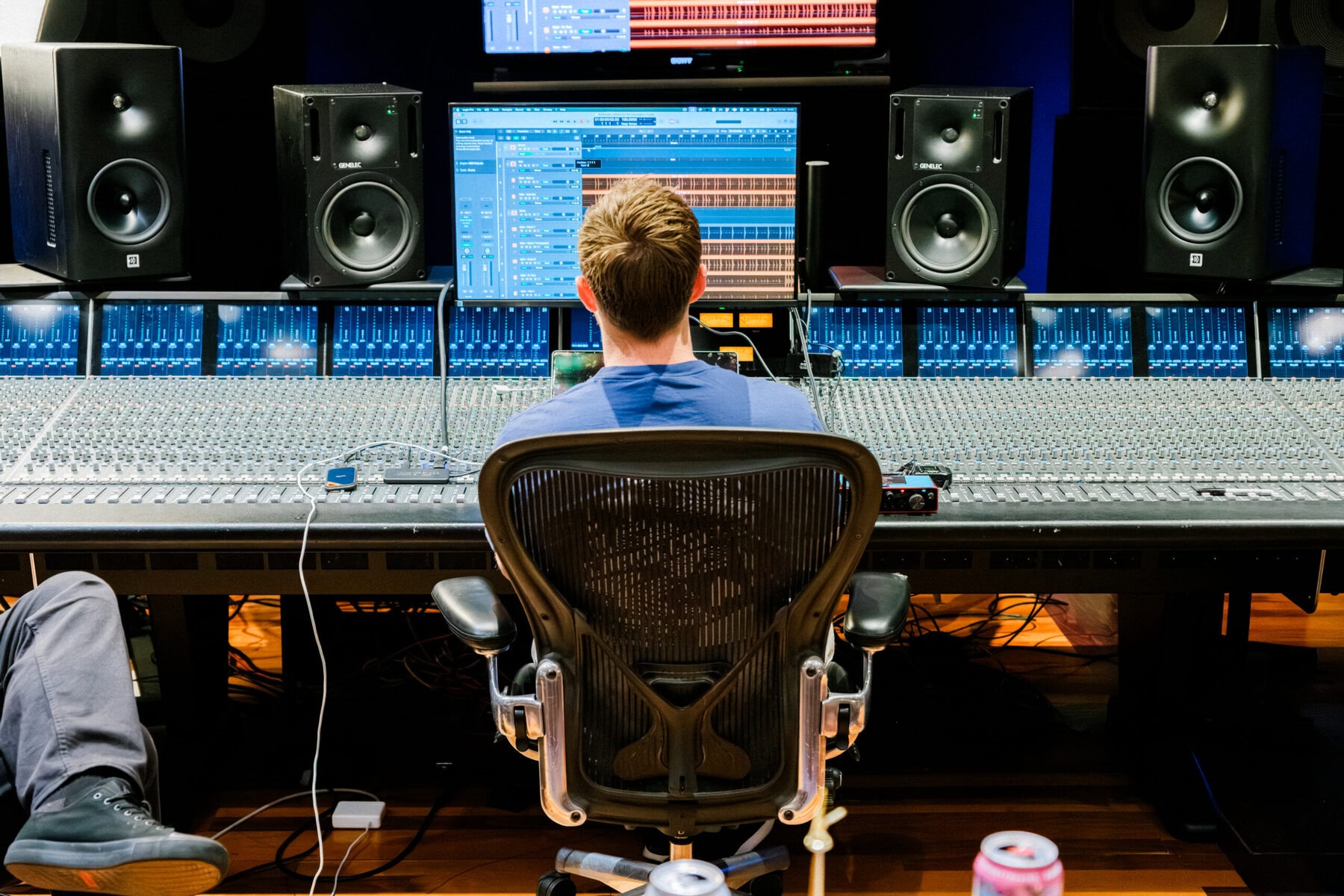The mellotron may be an old instrument, but it’s all over modern music. Just listen to the score for The Mandalorian
If you want to give your track a vintage sound that reminds you of The Beatles and other rock bands from the ‘60s and ‘70s…
Add a Mellotron.
So let’s talk about this trailblazer of an instrument. I’ll also cover some of the best Mellotron plugins for home studios.
But if you want to learn about the Mellotron specifically, keep reading.
What Is a Mellotron?
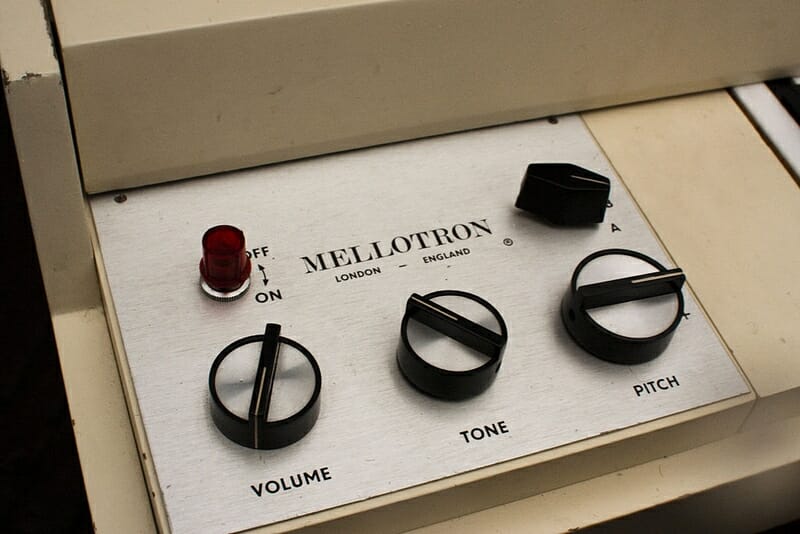
A Mellotron started out as an organ emulator.
Around 1950, Henry Chamberlin realized he could sample organ sounds using magnetic tape.
Each key in his invention triggers a recording of an organ playing that note. (It was appropriately called a Chamberlin.)
With this technology, the Mellotron was officially developed in 1963. But the Mellotron was different.
Folks realized you could emulate other instruments too. Like cellos, flutes, or literally anything that could be recorded.
This is what a Mellotron does. So it was basically the first sampling keyboard.
Nowadays, Mellotrons still use tape. Which can make the mechanisms somewhat stiff and definitely fragile.
But the tape makes the whole thing sound and feel vintage. And it all adds to its classic sound.
What Does a Mellotron Sound Like?
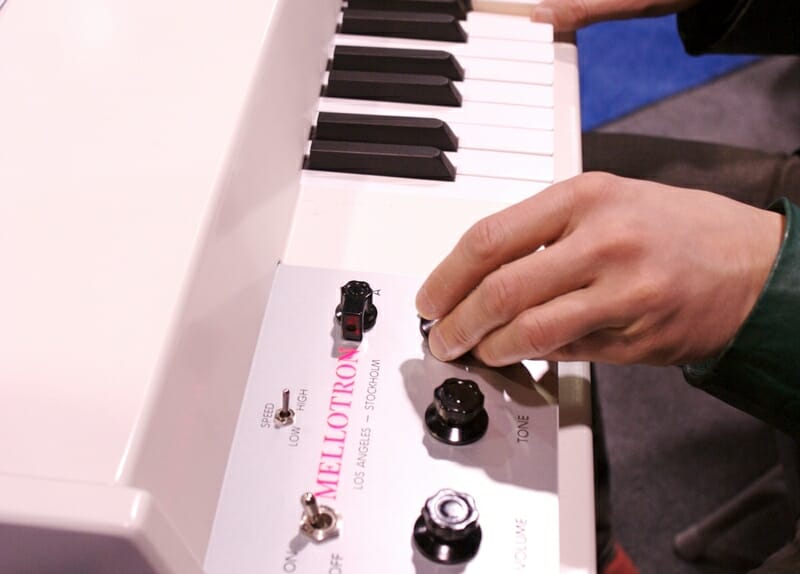
The best way to describe what a Mellotron sounds like is to show you.
So here are some songs that feature Mellotron:
The Zombies – “Changes”
The opening sound features Mellotron flutes, one of the most common Mellotron sounds.
The Beatles – “Strawberry Fields Forever”
As one of the most recognizable intros in modern music, SFF also opens with Mellotron flutes.
Led Zeppelin – “Stairway to Heaven”
After the iconic acoustic guitar opening, Mellotron flutes enter the song.
Oasis – “Wonderwall”
Most people think the cello sound is an actual cello. (I did until researching for this post!)
But it’s actually a Mellotron.
With these examples, I think you get the idea.
Mellotron has a very cool vintage sound. And it was basically a MIDI controller for virtual instruments before MIDI even existed.
Mellotron Plugins You Can Use
Okay, so most of us can’t get our hands on an actual Mellotron, as cool as that would be.
But there are plugins that emulate a Mellotron. Here are the best ones to check out…
Mellotron V by Arturia
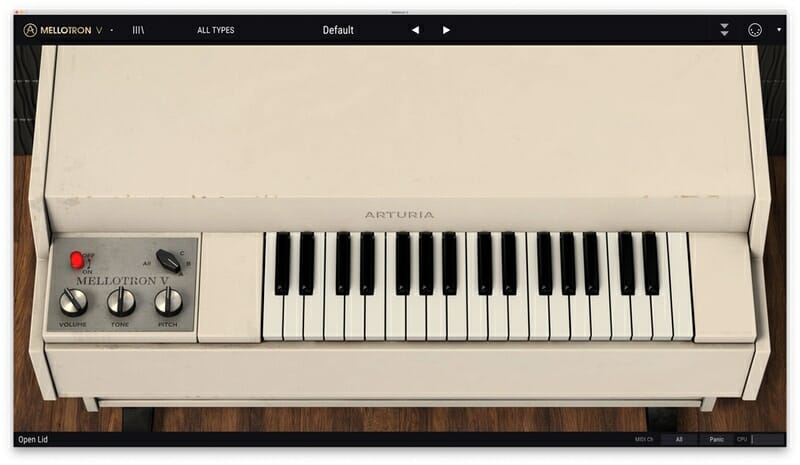
This plugin has a wide range of instruments, and you get plenty of settings. You control the ADSR, flutter, noise floor, tone, pitch, and a bunch of other settings.
This plugin is cool because you can load multiple samples on the Mellotron at once. So you could have flutes on the top half of the keyboard and cellos on the bottom half.
You can access a bunch of factory samples, plus you can load your own samples.
Newmello II by Wavesfactory
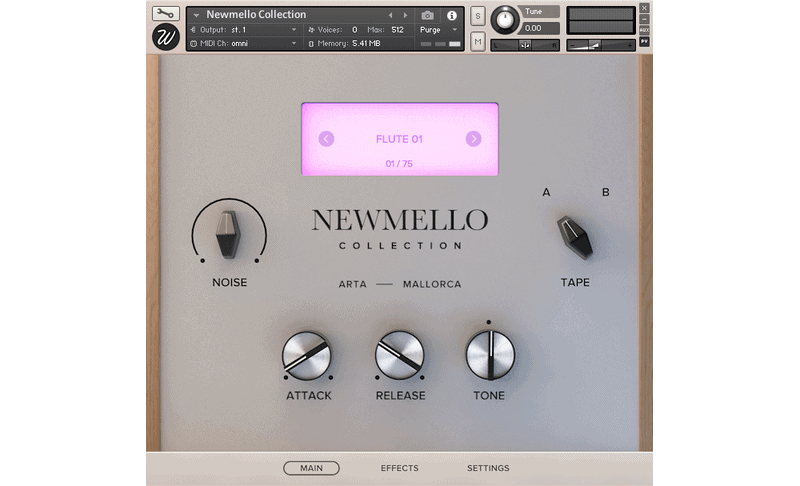
The Newmello II interface is very simple.
It’s a window that shows the noise and tape levels, attack, release, tone knobs, and a few other settings. You can choose one of 75 instrument samples.
But Waves didn’t just sample instruments in a professional studio.
They sampled the instruments through cassette tapes with lo-fi cassette decks. Giving them a truly retro sound.
Redtron_SE by Artifake_Labs
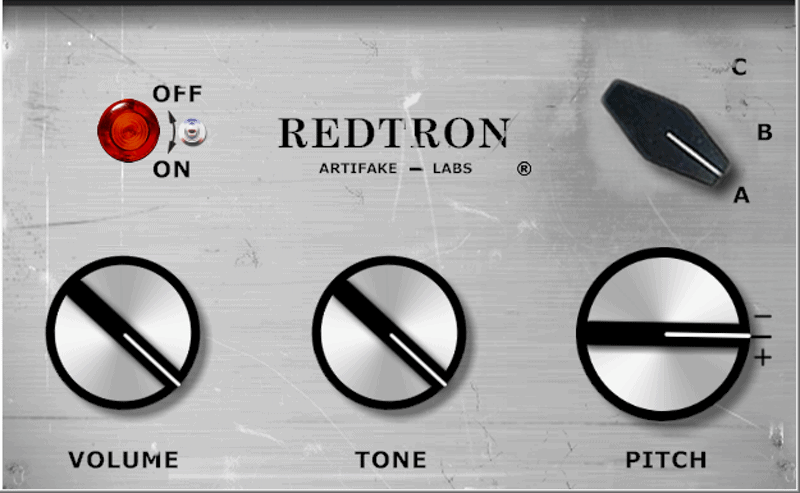
Redtron_SE samples sounds from a 1973 Mellotron M400S with just a bit of audio cleaning. Like removing clicks and pops.
You get nine sounds, each lasting eight seconds long:
- MKII Flute
- MKII 3 Violins
- M400 Cello
- MKII Brass
- M400 Combined Choir
- M400 String Section
- M400 Woodwinds
- M300A Violins
- M300B Violin
Like most Mellotrons, you control the ADSR, and you can layer two sounds together.
Mello by UVI
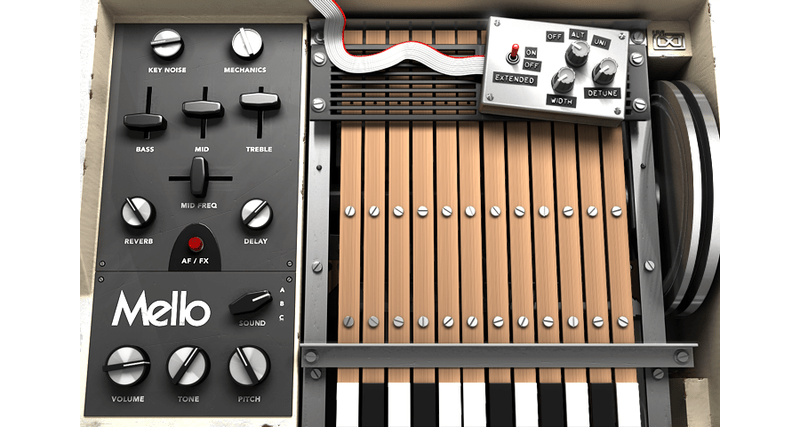
UVI didn’t clean up the vintage sound of the Mellotron (which you might prefer).
They give you 28 sounds and 12 presets. Plus, you have a bunch of basic and advanced settings.
You can choose between playing the sounds on a full 88 keys or on 35 keys, like the original Mellotron.
The interface seems pretty easy to use. It clearly shows you the knobs and dials on a virtual Mellotron.
Conclusion
If you want this unique retro sound, play around with a Mellotron plugin. And you don’t have to use it in a vintage context—this instrument still works great in modern music.


